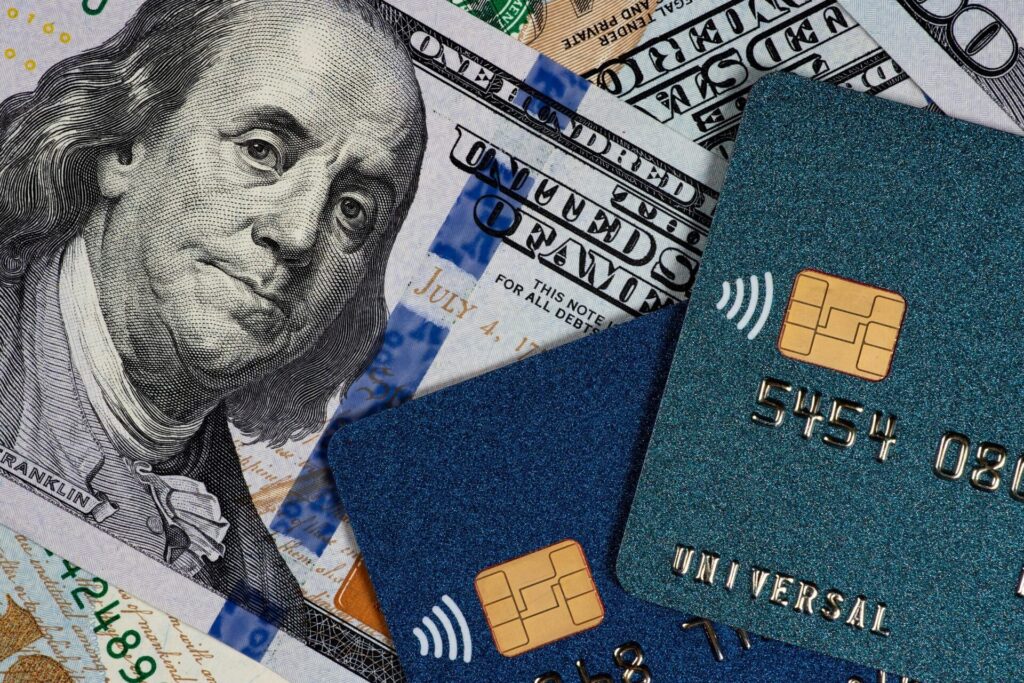Rewards credit cards are all over now—everyone seems to have airline cards, and every time you buy something at a department store or a home supply store they offer a store credit card like it’s a simple coupon. The allure of earning fun rewards while making everyday purchases is powerful, but the question lingers: are rewards credit cards worth it? They can have a lot of extra costs, when you look closely. Here are some of the things to consider.
1. Travel rewards cards
Travel rewards credit cards appeal to the wanderlust in us, offering a range of benefits like airline miles, hotel stays, and travel insurance. For frequent travelers, these cards can be a game-changer. They provide access to exclusive airport lounges, priority boarding, and discounts on travel-related expenses.
But the value of travel rewards cards depends on your lifestyle and spending habits. If you’re not a frequent traveler or if your card comes with high annual fees, the costs might outweigh the benefits. Additionally, some travel rewards programs can be complicated, with blackout dates and restrictions, so it’s important to read the fine print before committing.
To determine if a travel rewards card is worth it, look at your travel frequency, preferred airlines or hotels, and the overall cost-effectiveness of the rewards vs potential fees.
2. Cash back cards
Cash back credit cards are popular for their simplicity and flexibility. They offer a percentage of your purchases back in cash, providing a tangible and straightforward benefit. Cash back can be redeemed as a statement credit, a check, or sometimes as gift cards.
The appeal of cash back cards is in their versatility—you can use the rewards for anything you like. But not all cash back cards are created equal. Some may offer higher cash back percentages in specific categories like groceries or gas, while others provide a flat rate on all purchases.
To determine if a cash back card is worth it for you, consider your spending habits. If you consistently spend in certain categories, a card that rewards those purchases may be more beneficial. Also factor in annual fees and interest rates to assess the true value of the cash back rewards.
3. Store rewards cards
Store rewards credit cards are often offered by retailers and promise perks like discounts, exclusive sales, and rewards points redeemable at the associated store. While these cards can be tempting, especially during checkout when they can get you immediate savings, you should consider them carefully before you commit.
Store rewards cards usually have higher interest rates, and the rewards are often limited to the specific store. If you frequently shop at that store and can take full advantage of the discounts and promotions, a store rewards card might be worthwhile for you.
But if you like to shop lots of different places, or if you tend to carry a balance on your card, the high-interest rates may offset any savings you could get from the rewards. Before signing up for a store rewards card, look at your spending patterns and assess whether the benefits align with your lifestyle.
The bottom line: Are rewards credit cards worth it?
In the realm of rewards credit cards, the question of whether they are worth it doesn’t have a one-size-fits-all answer. The value of these cards hinges on individual preferences, spending habits, and financial goals. Travel rewards cards can be a dream come true for jet-setters, but they may not be as appealing to those who rarely leave home.
Cash back cards offer simplicity and flexibility, but the devil is in the details. Annual fees and interest rates can significantly impact their value. Store rewards cards provide immediate savings for loyal shoppers, but they may not be the best choice for those who prefer variety in their purchases.
To determine if a rewards credit card is worth it for you, conduct a thorough analysis of your lifestyle, spending habits, and goals. (A free tool like Brigit’s Finance Helper can be a great way to assess your spending habits.) Look at factors like annual fees, interest rates, and the specific rewards offered. Then compare that to what they’d normally cost vs what you’re paying in fees and interest to earn the points for them.










